Growing concern for our cities
Table Talk with Carrie Campbell P.

First & Ten
IBSA ANNUAL MEETING
Plans announced
First Baptist Church, Marion November 11-12, 2015

P. 4
MISSIONARIES
IMB downsizes
Up to 800 to receive buyout offers

P. 5
NOTEBOOK After Suicide
Survivors counter shame with grace
P. 6
Pastors stay in the game
Nashville, Tenn. | If you write your resignation on Monday don’t turn it in, the adage goes. And pastors are heeding it. Though they report stress about money and overwhelming ministry demands, only one percent leave the ministry each year, a new survey finds. Though the work is hard, pastors apparently love it.
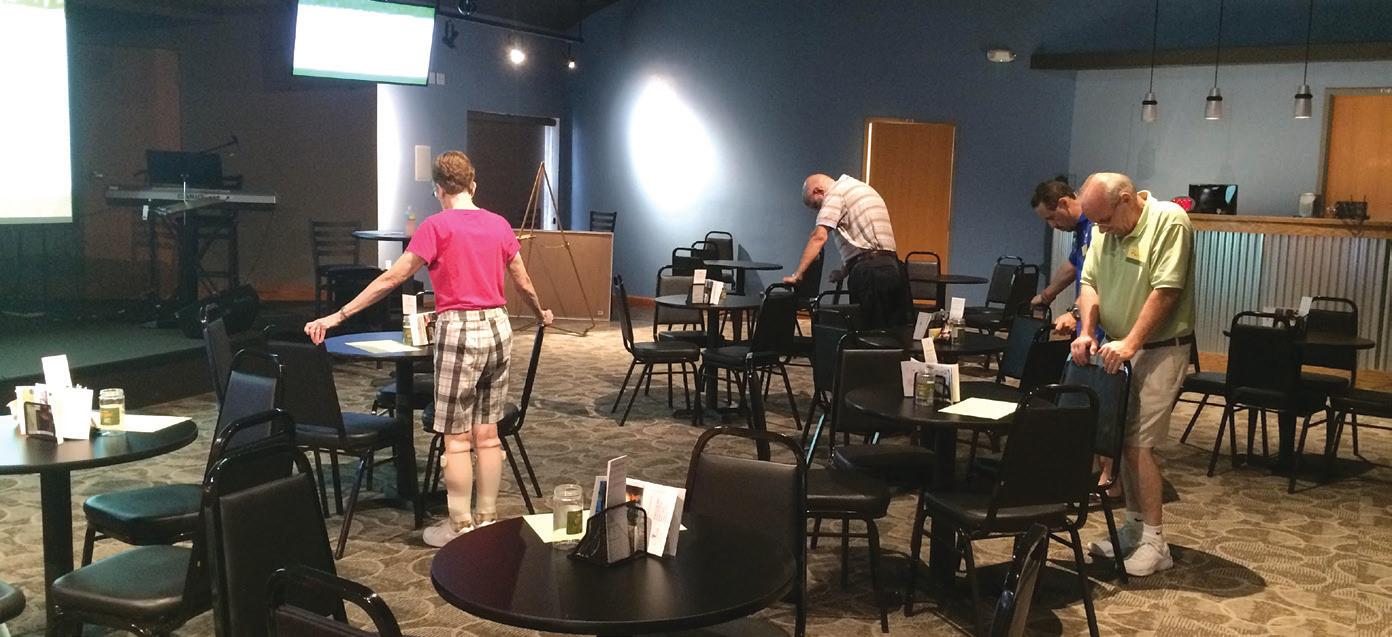
In a first-of-its-kind study, LifeWay Research surveyed 1,500 pastors of evangelical and historically
black churches and found an estimated 13% of those who were senior pastors in 2005 had left the pastorate ten years later for reasons other than death or retirement.
“Pastors are not leaving the ministry in droves,” said Scott McConnell, LifeWay Research vice president.

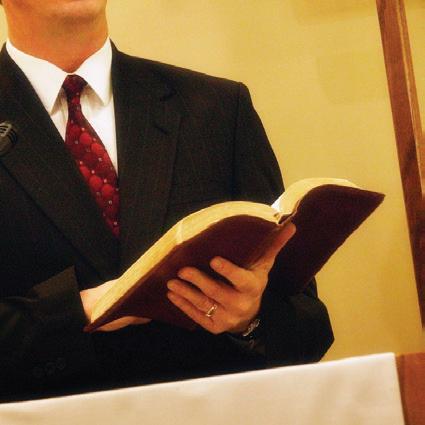
Still, pastors say the role can be tough:
• 84 percent say they’re on call 24 hours a day.

• 80 percent expect conflict in their church.
• 54 percent find the role of pastor frequently overwhelming.
• 53 percent are often concerned about their family’s financial security.
• 48 percent often feel the demands





CONVENTIONAL WISDOM
Snapshots from the world of Illinois Baptists
“For too long, many Christians have viewed mental illness as a character flaw rather than a medical condition… Open discussion of suicide and mental health in churches can make the difference of life or death.”
– Scott McConnell, LifeWay Researchculture: Suicide is epidemic in the U.S. Agreed Disagreed Unsure
Church: People who commit suicide go to hell Evangelicals
– Lifeway Research Survey, Aug. 2015
the cooperative program

Giving by IBSA churches as of 9/11/15
$4,191,746
Budget Goal: $4,430,769
Received to date in 2014: $4,248,759
2015 Goal: $6.2 Million
The Illinois Baptist staff
Editor - Eric Reed
Managing Editor - Meredith Flynn
Contributing Editor - Lisa Sergent
Graphic Designer - Kris Kell
Administrative Assistant - Andrea Hammond
Intern - Morgan Jackson
For questions about subscriptions, articles, or upcoming events, contact the Illinois Baptist at (217) 391-3110 or IllinoisBaptist@IBSA.org
The Illinois Baptist is seeking news from IBSA churches. E-mail us at IllinoisBaptist@IBSA.org to tell us about special events and new ministry staff.

POSTMASTER: The Illinois Baptist is owned and published every three weeks by the Illinois Baptist State Association, 3085 Stevenson Drive, Springfield, Illinois 62703-4440. Subscriptions are free to Illinois Baptists. Subscribe online at IBSA.org
NATE ADAMSIn the Middle
Lately I am reminded lately of the song “Stuck in the Middle with You.” The song was written by Gerry Rafferty and Joe Eagan, and recorded by their band, Stealers Wheel, in 1972. The song was inspired when Rafferty and Egan were seated at a restaurant table with record company representatives on one side of them and producers on the other. The executives were talking across them, conducting business, and the singers were “stuck in the middle.”
Neither the IBSA staff and missionaries nor I feel “stuck” in any sense of the word, but I do feel we’re in the middle of something. As a middle-sized state convention here in the middle of the country, and now in the middle of a funding challenge, we are also in the middle of some crucial questions about how we do ministry, how we advance the gospel, and how we sustain our shared work financially.
In the previous issue of the Illinois Baptist, I outlined reasons that inspire me personally to give through my church to the Mission Illinois Offering each year. (See IBSA.org/MIO.)
I unapologetically ask IBSA churches to receive an annual offering for state missions. But there are some additional dynamics that make the Mission Illinois Offering even more important this year.
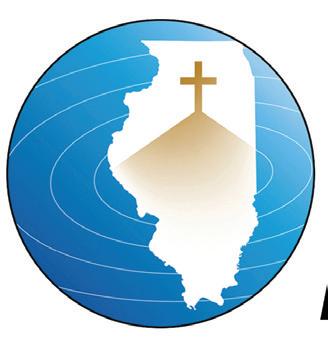
For one thing, Cooperative Program giving in Illinois, the primary funding source of our missions and ministries, has not yet rebounded from what’s now called “The Great Recession” of 2007-2009. Yet expenses, especially “people costs” such as healthcare and travel, continue to rise. For example, IBSA’s healthcare premiums will increase 20% next year, or almost $65,000. Yet CP income planned in the 2016 IBSA budget is actually $340,000 less than we received in 2009.
Compounding the CP shortfall is a strategic shift by our partners at the North American Mission Board to focus almost exclusively on church planting in larger cities. Of course church planting is a top priority for us in Illinois too. But now funding for staff and ministries such as WMU and women’s ministries, collegiate ministry, IBSA’s church consultants and partnership with local Associations, and soon our funding of the Christian Activity Center in East St. Louis, must come 100% from the IBSA budget, rather than being shared by both NAMB and IBSA.
We appreciate the partnership NAMB provides for church planting, especially in Chicago and metro St. Louis. But we must ask how other Illinois ministries can continue to be funded. The Mission Illinois Offering is the single most important factor in answering that question.
Over the past five years, larger state conventions have downsized by a third or more. Smaller state conventions who are much more dependent on NAMB funding have needed to focus their attention more exclusively on church planting, often at the expense of assisting existing churches.
While we in Illinois have also downsized and economized, we’ve done so gradually, without layoffs or major loss of services or ministries. In a sense, we benefit from being “medium-sized,” with enough resources to be somewhat self-sufficient, and yet not so many institutional obligations that limit our options for trimming budgets.
You and your church can help through generous participation in the Mission Illinois Offering. If your church does not collect the Mission Illinois Offering, you can contribute directly. Visit www.IBSA.org and click on the “donate” tab. Or mail your gift labeled “MIO” directly to IBSA at 3085 Stevenson Dr., Springfield, IL 62703.
And for the record, there’s still no place in the world I’d rather be than here in the middle with you.
Nate Adams is executive director of the Illinois Baptist State Association. Respond to his column at IllinoisBaptist@IBSA.org.

We face crucial questions about how we do ministry, advance the gospel, and sustain our work.
from the front
Christians question jailed clerk’s actions


The refusal of Rowan County Kentucky Clerk Kim Davis to issue marriage licenses to samesex couples based on her Christian convictions (and her subsequent jailing for five days by a U.S. district judge for failure to carry out the duties of her office) has prompted debate among Christians about whether she should resign.
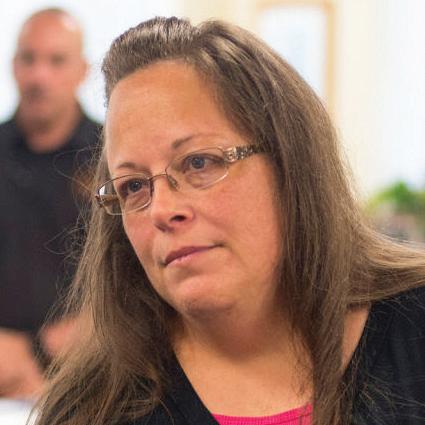
Southern Baptist Theological Seminary President Albert Mohler wrote: “The Christian church has long struggled to understand how Christian faithfulness is translated into faithful decisions in any number of political and legal situations.” There is, however, “no automatically right answer” to Davis’ situation. Joe Carter of the SBC’s Ethics and Religious Liberty Commission described Davis as a “conscientious objector.” He wrote, “While we don’t have an absolute right to religious liberty, we also don’t give up every religious liberty when we work for the government.”
of ministry are more than they can handle. • 21 percent say their church has unrealistic expectations of them.
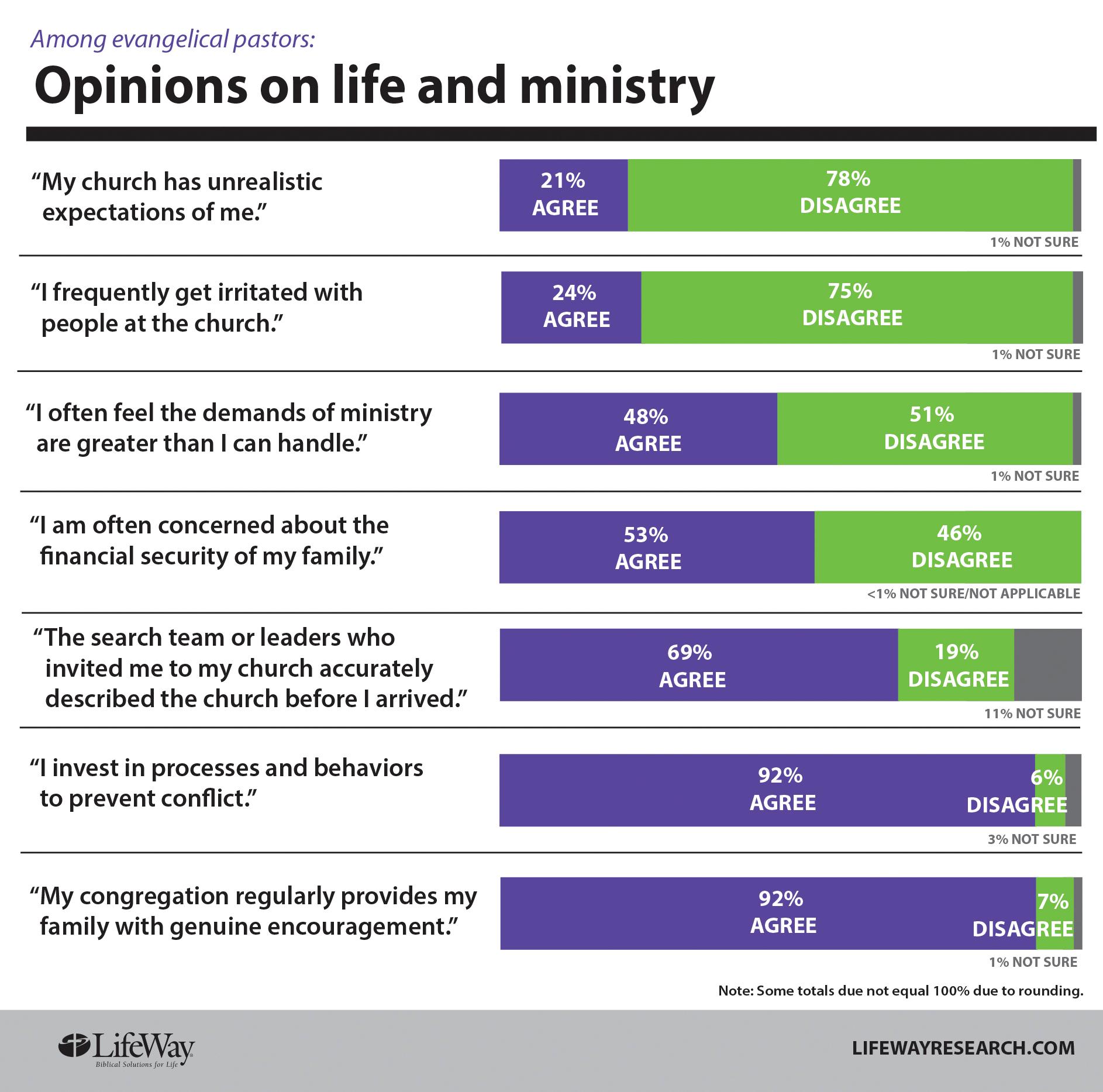
“This is a brutal job,” McConnell said. “The problem isn’t that pastors are quitting—the problem is that pastors have a challenging work environment….Churches ought to be concerned, and they ought to be doing what they can (to help).”
The survey, commissioned by the North American Mission Board and Richard Dockins, an occupational medicine physician in Houston concerned about pastoral attrition, also examined why pastors leave the ministry and what can be done to support pastors.
Looking back at the leadership of their church 10 years earlier, today’s pastors report relative stability. Almost half (44%) say they were pastor of their current church 10 years ago. Overall, McConnell estimates a total of 29,000 evangelical pastors have left the pastorate over the past decade, less than 1% per year, fewer than 250 a month.
Many senior pastors are relatively new to their current churches—35 percent have been there five years or less. Most are not new to the pastorate, however; 57% held that role elsewhere.
Most pastors said they moved on because they had taken the previous church as far as they could (54%). However, 23% of pastors who changed churches say they left because of conflict in the church.
Church conflict often took multiple forms in pastors’ last churches, including significant personal attacks against 34% of the pastors. Pastors also reported conflict over changes they proposed (38%), their leadership style (27%), expectations about the pastor’s role (25%), and doctrinal differences (13%). In addition, 38% faced conflict with lay leaders, and 31% found themselves in conflict with a church matriarch or patriarch. More than a third of pastors (34%) say they left a previous church because their family needed a change.
“Each pastor I talk to agrees that there are increasing demands placed on his life and family today,” said Michael Lewis, executive director for pastor care at the North American Mission Board. “Healthy pastors with growing family relationships are empowered to lead healthy congregations that reach their communities.”
Lisa Cannon Green is senior writer for Facts & Trends magazine.
Rod Dreher of The American Conservative called Davis “a bad martyr for the cause of religious liberty,” and said, “we conservative Christians will come to regret her stance.”
– AlbertMohler.com, ERLC.com, American Conservative
Chaplain’s job saved
A judgment on in favor of a Navy chaplain is being called “a huge victory” for religious liberty. Wesley Modder counseled Navy personnel that homosexual and pre-marital sex are wrong. His commanding officer said Modder discriminated against sailors of different faiths, but an admiral ruled that Modder had not shown misconduct. His attorney, Mike Berry of the Liberty Institute said, “I expect it will have a major impact and will be used as a case study by those in the military and members of Congress. (It’s also) a warning to commanders that they must act cautiously when they tread on the rights of military members.”
– Christian Post





Annual Meeting
Nov. gathering targets 5 goals
“Build Your Kingdom Here” is the theme for the IBSA Annual Meeting set for November 11-12. First Baptist Church of Marion, which is celebrating its 150th anniversary this year, is hosting the event.

The theme comes from the popular song of the same name by Rend Collective. In the meeting, attenders will be asked to consider up to five commitments they may make on behalf of their churches, which promote spiritual growth and gospel advance. The commitments will be explained in a special section of the October 12 Illinois Baptist
The Pastors’ Conference will precede the Annual Meeting on Nov. 10-11. Guest preachers are pastors Timothy Cowin of The Rock Church in St. Louis, Phil Hunter of West County Community Church in Wildwood, Missouri, and Jimmy Scroggins of First Baptist Church of West Palm Beach, Florida. The Missouri pastors are well known in the region for effective church leadership. Scroggins is the featured teacher on NAMB’s 3 Circles: Life Conversation Guide, a video demonstrating how to share faith by drawing a simple diagram.
The Pastors’ Conference will also feature breakout sessions with the key speakers and IBSA ministry team. A “Tailgate Dinner” of finger foods, sandwiches, and Disaster Relief chili will be available for $5 on Monday night.
Special room rates have been arranged at several Marion hotels. Visit IBSA.org/IBSA2015 for information.
Needs survey
IBSA to poll churches
A new survey of IBSA church needs will be distributed during the week of September 27. The survey will seek input from churches on missions, ministries, and services provided by the state association.
A similar survey was conducted over a five-year period starting in 2007 by USPS mailings to pastors, church members, and directors of missions. This survey will be conducted online, at a considerable savings over the traditional print version.
Participants will be invited in the weekly E-Connection e-mail newsletter. Or you can visit IBSA.org to take the survey.
Those who wish to take the survey in print may contact IBSA for a paper version to be sent by mail. Call (217) 391-3127 to request a copy. Or write to
IBSA Church Needs Survey
3085 Stevenson Drive
Springfield, IL 62703
Attn: Andrea Hammond
Geography and generations
Board of Directors hears positive mid-year reports
Springfield | The September 15 IBSA Board of Directors meeting was a mix of encouraging news from spring and summer ministries, new goals for 2016, and cautious optimism about financial challenges.
Nate Adams, IBSA Executive Director, reported “cause for celebration,” as ChicaGO Week, a church planting camp for students, tripled in size over 2014 attendance, from 65 participants to 181 students plus leaders. The increase required permission for a $43,000-overspend in the student ministry line item which was enthusiastically approved by the board. In his report, Adams shared heartwarming photos and a bit of video from the missions week that teamed youth with church planters in Chicago’s neediest communities.
“We pull churches together across geography, but we also pull churches together across generations,” Adams said. “Part of our ministry is to help churches in places like Chicago and Metropolis span their geography in order to send missionaries and train leaders together. But we also have a longer term ministry of connecting Baptist generations,” Adams reflected.
Other student events also reported significant increases over last year. IBSA Kids Camp enrollment was up 37%, Super Summer saw an increase of 11%, and Summer Worship University reported a 27% increase.
The Women’s Priority Conference (formerly the Women’s Missions Celebration) held in April drew 429 women, its highest attendance in 15 years, aside from the WMU 100th anniversary celebration in 2008. The conference also boasted a 25% increase in the number of churches represented.
Calling it “encouraging news,” Adams reported through the end of August, IBSA trained 5,380 individuals from 500 churches who received 14,503 trainings (multiple sessions attended by an individual). Those numbers do not include additional training still being tabulated by IBSA’s 11 Zone Consultants.
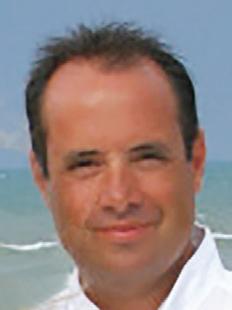
He also noted that IBSA churches have reported starting 211 new Bible Study groups through August, far surpassing the year’s goal of 100. And a total of 513 churches and, 579 individuals have participated in 91 IBSA mission projects during that same time period.
In the area of church planting, 20-22 new churches are possible by the end of the year, Adams projected. While the goal by year-end is 25, the number is already up considerably from last year’s 10 new church plants.
The board approved the 2016 budget with Cooperative Program giving reduced $100,000 from 2015, to 6.3 million. The peak CP budget was $6.85 million in 2009 along with a peak CP offering of $6.64 million.
Current Cooperative Program giving in Illinois was reported as “stable,” although down about 1% from the previous year.
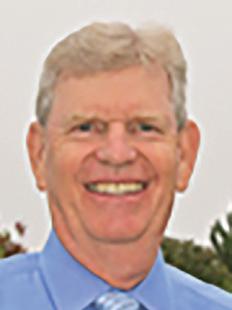
The 2016 budget projected a 16% increase in staff healthcare premiums, though last week, GuideStone notified the association
that the increase will actually be 20%. Adams said he is working with GuideStone on ways to reduce it to the budgeted amount. He noted IBSA “will almost certainly have to pass on some of that increase to our staff.”
Adams reminded the board that a large percentage of what IBSA does for churches results in “people” costs. “IBSA is only as good as the people put out there to serve churches,” he noted. “And I believe we have outstanding people on our staff.”
At the conclusion of the budget discussion, Board President Chip Faulkner noted, “We are on new ground in so many ways—economically, for example. Likewise, we think about the ways our culture has changed. Not only are we able to go to the world, but the world is coming to us.
“We have never been here before. That calls for amazing leadership and insight and discernment. We are fortunate that Dr. Adams and the IBSA staff are providing that kind of leadership.”
A motion to create a memorial expression for Melissa Phillips, IBSA’s Church Cooperation Team Associate Executive Director who died in July, was swiftly approved. Phillips celebrated 35 years with IBSA on June 15 of this year. The expression will include a plaque in the IBSA Building’s first floor Resource Room recognizing her work in the building’s renovation. Another planned expression is a marker in the garden area on the north side of the IBSA building. In addition, a fund will be established to refresh the garden area with new plants or landscaping in future years.
In other business:
• Members elected Bob Dyer (Bethel Baptist, Bourbonnais) to serve as Board Chair, Mark Davis (Woodland Baptist, Peoria) to serve as Board Vice Chair and Chris Winkleman (First Baptist, Harrisburg) to serve as Board Secretary.
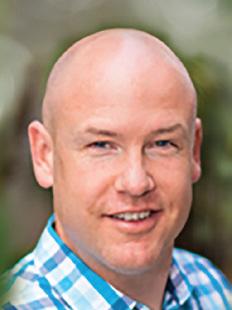
• Five IBSA board members finishing their terms of service were recognized. Chip Faulkner, Bryan Price, Jim Rahtjen, Mara Rice, and Tami Saebeler were presented with small thank you gifts.
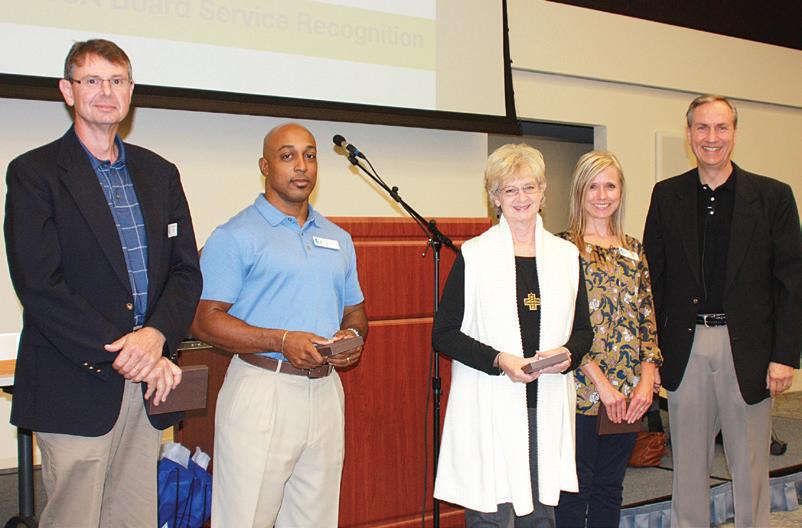
• The board approved a new cooperative agreement with the Baptist Foundation of Illinois. The agreement reduces the IBSA subsidy received by BFI from $158,272 in 2015 to $111,727 in 2016.

IMB downsizing
Cuts prompt calls for prayer, CP giving
Richmond, Va. | A week after announcing cuts of 600-800 personnel, including missionaries, International Mission Board President David Platt urged Southern Baptists to “pray that God will provide grace, wisdom, strength, and unity across the IMB family as we navigate the various challenges” in the coming months.
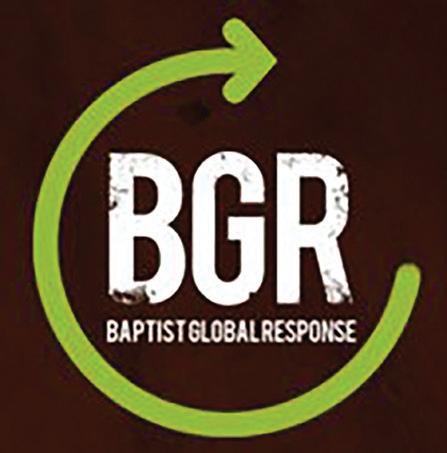
Those challenges include helping career missionaries who have served for decades make choices about leaving their fields and accepting early retirement, and balancing a budget that for most of a decade has depended on cash reserves and the sale of property to stay in the black.
While giving through the Cooperative Program and Lottie Moon Christmas Offering has increased in the last few years, the IMB projects it will fall $21 million short of its current budget this year. This follows several consecutive years of revenue shortfalls and six years of expenditures totaling $210 million dollars more than has been given to the IMB.
“…We don’t have an endless supply of global property to sell, and our cash reserves are no longer at a desirable level for good stewardship going forward,” Platt said. “When staff leadership realized the severity of our financial situation, we knew that we needed to take significant action.”
That significant action means cutting 15% of IMB’s 4,800 staff through attrition and early retirement, mostly by year’s end. Platt called the plan “a complete reset” of the organization.
Southern Baptists continue to feel the reverberations from the announcement, ranging from questions from pastors—“Why not ask the churches for more money?”—to quiet pleas from heavy-hearted missionaries in their newsletters—“Must we leave our fields of service?”
Platt said the board has appealed for more money for years, pointing to campaigns and releases dating back to 2008, saying in effect that spending more than you receive is not a sustainable model. Platt, who has led the IMB for less than a year now, is careful
not to blame his predecessors in the presidency.
Jim Richards, Executive Director of the Southern Baptists of Texas Convention, was not so reserved. “Thinking that once every people group (ethno-linguistic) had the gospel that Jesus would come back caused a short-sighted strategy,” he wrote on Sept. 14. “While gospel advance is the priority of the IMB, it should have been done without jeopardizing future needs.”
Richards, like others, points to cooperative giving as a solution to IMB’s ongoing funding needs. “If churches were to give 10% through the Cooperative Program, there would be no missionaries called back from the field,” Richards said. “Ten percent through the Cooperative Program may be an arbitrary figure, but it will provide the funds necessary to enable our missionaries to keep pushing back the darkness.”
Southern Baptist churches currently give an average of 5.47% nationally. In Illinois the average giving is 6.8% of undesignated offerings.
On his blog, SBC President Ronnie Floyd said churches should evaluate their missions giving through the Cooperative Program. Just over 50% of all gifts to the national SBC through CP go to international missions. “Regardless of our thoughts or feelings on the (IMB’s) budget announcement, now is the time to go to the Lord in prayer about it more than ever before,” Floyd wrote.
Phase one of the IMB reset is the voluntary retirement or resignation of missionaries and staff. Offers have been made to all staffers over age 50. Platt stressed no one would be pressured to leave during this first phase. In phase two, decisions will be made on how remaining missionaries will be used.
As the “reset” moves forward, it will continue to be felt in the Southern Baptist Convention. As Richards wrote, “The IMB is the 900-pound gorilla in Southern Baptist life. When the IMB sneezes, all Southern Baptist ministries catch a cold.”
Syrian Christians rejected

Europe is facing its largest refugee crisis since the Second World War as an estimated 4 million Syrian refugees arrive on the continent. They join refugees from Iraq who also left their homes fleeing from the Islamic terrorist group ISIS. According to World magazine, the U.S. will not welcome Syrian refugees based on their faith: “This administration will not issue visas for Syrians based on Christian faith.” That was the word given to Anglican bishop and relief worker Julian Dobbs by the State Department’s Bureau of Population, Refugees, and Migration. This year, the Chicago Tribune reported, 94 refugees from Syria have been resettled in Illinois, 62 of them in Chicago.
SBC aids refugees
American Christians are being urged to pray for Syrian refugees and those who are ministering to them. Southern Baptist agencies including Baptist Global Response and Global Hunger Relief are assisting. BGR is distributing food and hygiene items, blankets and medicine to 2,500-4,000 refugee families as well as diapers and formula for families with young children. All donations given to GHR go directly to meet hunger needs through a partnership with IMB, NAMB, and Baptist Global Response. Text “refugee” to 80888 to donate $10 for Syrian refugees.
‘Heaven’ film distorts theology, prof warns
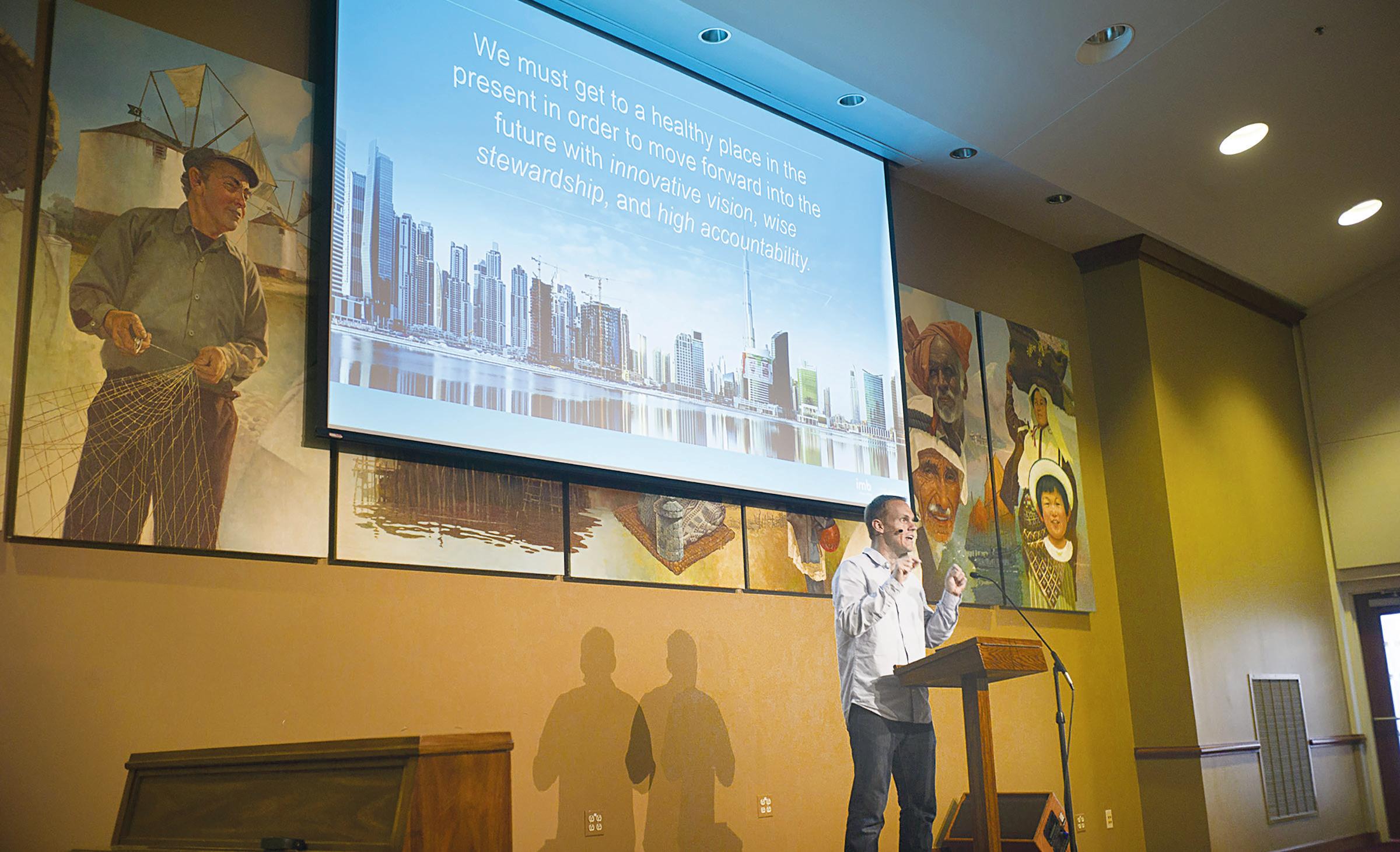
With “90 Minutes in Heaven,” the new movie about a near-death-experience in theaters now, a seminary professor from Lombard, Illinois is urging caution. “If we study what the Bible says about Heaven, we will come to the conclusion that what the Bible says about Heaven is seriously out of sync with what NDEs tell us about Heaven and that deeply concerns me,” Northern Seminary’s Scot McKnight warned. “I believe that reliance upon these stories can harm Christian theology and a biblical understanding of what Heaven is like.”
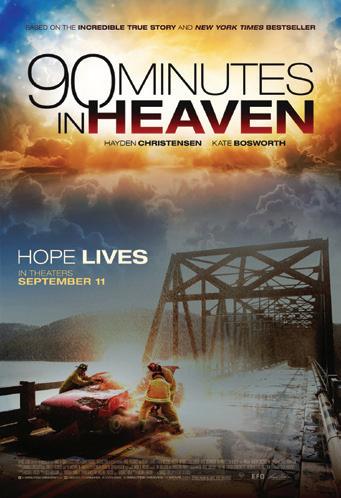
– World magazine, Chicago Tribune, Baptist Press, Christian Post.
Get breaking news in The Briefing online, posted every Tuesday at www.ib2news.org.
After ‘Ashley Madison’
The names of 32 million people seeking illicit liaisons were made public when hackers broke into a website.

August 26: “Based on my conversations with leaders from several denominations in the U.S. and Canada, I estimate that at least 400 church leaders (pastors, elders, staff, deacons, etc.) will be resigning Sunday. This is a significant moment of embarrassment for the church…”
–Ed Stetzer, LifeWay Research on his Christianity Today blog
Actual number: 3
September 6: Despite the millions of names released in the database breach, Stetzer says a small number are pastors. “The majority are continuing faithfully, obediently in the ministries where God has placed them,” he said.
– Stetzer, quoted on CBN
Sad truth: Pastors are sinners too
John Gibson was fun and funny. He was smart and caring. He was a good teacher and a fine preacher. He was also troubled. He wrestled with depression for many years, and recently we learned he struggled with pornography.
That came to light because John confessed it in his suicide note.
I said “no way” when LifeWay Research President Ed Stetzer predicted 400 pastors might resign on the Sunday after 32 million names were revealed in the hacking of adulterous hook-up site Ashley Madison. Again I said “no way” when others predicted a wave of suicides among those outed in August.
In the end, Patheos blog reports, three reChristian leaders resigned and one died.
I knew the man who died.
John Gibson was a few years ahead of me at New Orleans Baptist Theological Seminary. If memory serves, he was working on a doctorate and served as grader for my evangelism professor. He left to pastor a church, and some years later returned to New Orleans to serve on staff and eventually to teach. Some people knew of his struggle with depression. There aren’t many secrets on a seminary campus.
But apparently his wrestling with sexual addiction was not widely known. Gibson’s
wife, Christi, said her husband knew he would lose his job when his name appeared on the hacked list, and he couldn’t face the humiliation.
Christi found his body in their seminary campus home on August 24. Then she had to tell their two children.
“There is brokenness in every single one of us. We all have things that we struggle with,” she told CNN last week. “It wasn’t so bad that we wouldn’t have forgiven it, and so many people have said that to us, but for John, it carried…such shame.”
Gibson’s family shared some of his story in a service at the seminary chapel. “My dad was a great man,” son Trey, 24, said. “He was a great man with struggles. My dad reached a point of such hopelessness and despair that he took his own life.”
“I still believe it could have been fixed,” Gibson’s wife said to cable news viewers. “It could have been healed.”
As a newsman, not much surprises me anymore. As a pastor, not much disappoints me, except the lack of grace when people need it most. To the sad truth that pastors are sinners, we offer this good news: Jesus died to save sinners.
Including pastors.
Because we are Christians, we don’t compromise our teaching integrity. I want to train future teachers, doctors, athletic trainers and physical therapists to know the content area as well as anyone else in the world, and also to show Christ’s love through their work
IN FOCUS
First & Ten?
The numbers may be surprising. A people who claim generous giving as a way of life, with the biblical standard of 10% as their benchmark, give only about 3% of their income to charitable causes, including their local church. And of evangelicals, only 12% qualify as tithers, giving 10% or more of their income to their church (or other organizations), according to researcher George Barna.
So, what’s the disconnect?
We talk about tithing. We teach tithing. But many believers don’t tithe. Why?
And here’s a better question: What’s at stake if we don’t give generously?
Hitting the mark
Why generous giving is a necessary stretch
BY ERIC REEDThe play is complete, the ball is down, but the purpose of the next play is unclear. If the football has been moved 10 yards, it’s a first down and the offense gets to start counting its march downfield from its new vantage point. If not, the play could be the last, for now. Ground gained could be lost.

So the chain gang comes in from the sidelines to measure the advance of the ball. Was it 10? Is the offense positioned to start another advance?
Similarly, in ministry, gospel advance is often determined by the resources available to move the mission forward. And month after month, we call in the chain gang to measure our progress financially.
Sometimes we pass the line. Often we fall short.
At issue is how we teach people to give, and how we budget based on those expectations.
Many evangelicals have a firm commitment to tithing as a New Testament command. Tithing is commanded in the Old Testament. In fact, multiple tithes are collected from the Israelites to support the priests, the temple, and the poor.
It is the prophet Malachi who puts the sharpest point on the one-tenth rule: “Will a man rob God?
Yet you are robbing Me!....By not making the payments of the tenth and the contributions. You are suffering under a curse, yet you—the whole nation—are still robbing Me. Bring the full tenth into the storehouse so that there may be food in My house. Test Me in this way,” says the Lord of Hosts (Mal. 3:8-10, HCSB).
Continued on page 8
In focus: Obedience moves the gospel toward the goal
continued from page 7
When Jesus speaks about giving 400 years after Malachi, the tenth is assumed (Matt. 23:23). But Jesus, criticizing the legalistic actions of the Pharisees, expresses concern about the heart in giving. And Paul prescribes giving that is compassionate, generous, systematic, and regular (1 Cor. 16:1-2).
Some would argue that the tithe is still in place for New Testament believers, that it is still a command. Others contend that, free from Law, the tithe becomes a benchmark for believers who choose to give, and that the command is instead generosity.
Call it obedience
Former Illinois pastor Rick Ezell frames tithing as an act of obedience. “If you are tithing, you are being obedient to God’s instructions. But remember that tithing has always been the floor—the place to begin, not the ceiling—the place to end, of giving to God’s work.”
In a recent devotional for his South Carolina congregation, Ezell advised taking steps to correct faulty giving patterns. “If you are not tithing, perhaps it is because of poor money management. Many believers don’t tithe not because they don’t want to, but due to their current economic situation and spending habits. Maybe you need to spend some time examining your expenses and evaluating your priorities.”
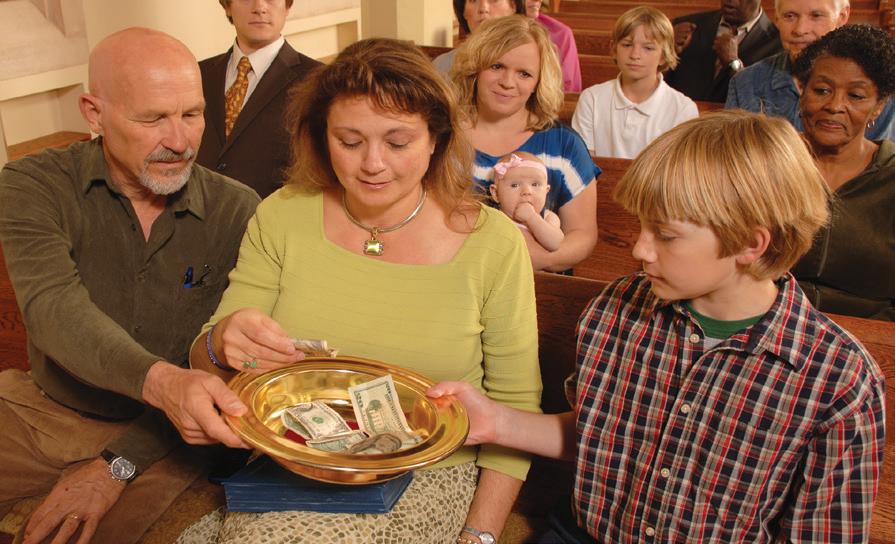
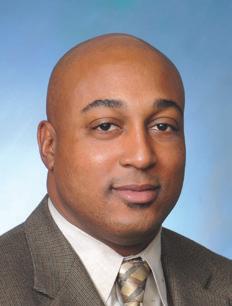
“I am very direct about preaching and teaching on generous giving,” said Doug Munton, pastor of First Baptist Church of O’Fallon. He holds up the tithe as the standard. “I have tithed and beyond all of my life and this is extremely valuable to my spiritual life. I preach on the importance of a generous life.
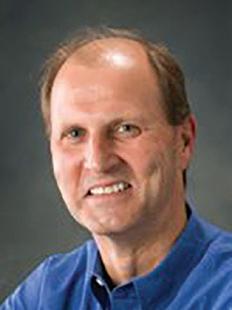
“Generous giving (tithing and beyond) is one of our expectations of members of FBCO. And generous giving is one of the great joys of my life.”
For Bryan Price, pastor of Love Fellowship Baptist Church in Romeoville, the tithe offers clarity. “For me, the idea of tithing gives a better guideline for people, gives a benchmark,” Price said. “Focusing
Preaching on giving
t a church service in Pittsburgh, the pastor announced it was time to collect the offering. The people began hooping and cheering. Why? Because the Lord loves a cheerful giver, the pastor explained, one who gives with hilarity (2 Cor. 9:6). “But,” he warned the congregation, “we’ll pass the plates again if we don’t receive enough the first time!”
Imagine creating an environment where giving is cheered and offering time is a happy expression of worship.
on giving (rather than tithing specifically), that benchmark was missing.”
Both Munton and Price preach regularly on giving. Munton leads an annual stewardship emphasis. And Price returned to a financial series after a two-year break when he was encouraged by church leaders to address the issue again.
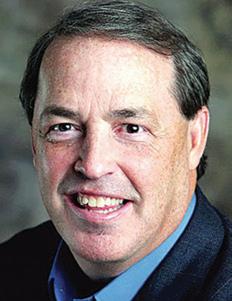
“Having discussion with our elders, I asked our Sunday school to join me (in a stewardship emphasis). Price admits he feels some tension when preaching on giving. “You don’t want to come across trying to beat people over the head about money,” he said, but “we made a concerted effort, and it proved beneficial.”
Especially among younger people. “You would think people would be familiar with tithing, but we have younger people coming up and newly marrieds. They’re hearing these things for the first time really.”
And the results? “We have definitely seen an increase in giving in the past several months,” Price said.
The head of an organization called Generous Giving, Brian Kluth, says pastors can’t be shy about teaching on money. “We need to learn to be open-handed people in a tight-fisted world.” Kluth had considerable success as a pastor leading his Colorado congregation in giving. “Every time you give to the Lord, you are declaring who your source is, who your help is,” Kluth said.
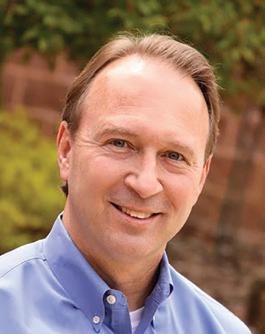
In a recent blog post on tithing, Southern Baptist Convention President Ronnie Floyd warned against greed as the enemy of generosity: “Somehow we must grow in our faith enough to understand that when we do not give biblically by both tithing and practicing generosity, we are not walking in godliness.”
But, he admits, it will take support from the pews to overcome reticence to address money issues. “Lead the way laypeople, encouraging your pastor to preach on tithing and generosity. Encourage and defend
Stewardship teacher Brian Kluth advises preaching often on giving. “It’s not a matter of how much you have,” he said, “it’s a matter of being faithful with how much you have.”
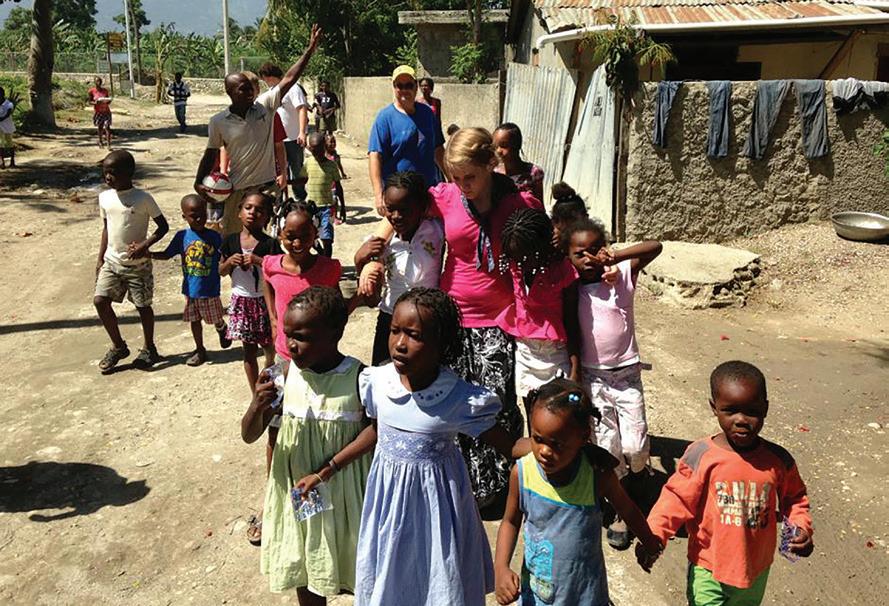
Here is a sermon from Kluth.
“Why Become a Generous Christian?”
1. Generous giving allows you to see God as your provider.
(Deut. 8:17-18; 1 Chron. 29:14-17; Matt. 6:24)
2. Generous giving allows you to overcome financial fear and worry.
(1 Kings 17:10-16; Gen. 28:20-22; Matt. 6:31-33)
3. Generous giving allows you to bring order to your finances.
(Prov. 23:4-5; Deut. 14:22-23; Prov. 3:9; Mal. 3:10-11)
him both privately and publicly,” Floyd wrote.
Floyd’s comments come as the SBC strains to rebound in Cooperative Program giving to missions, and to answer long-term questions about funding for SBC missions on all fronts. The potential for gospel advance would be almost unimaginable, if the biblical standards for generosity were heeded.
What if we all tithed?
Empty Tomb, Inc., a Champaign-based research firm, asked this question when average giving by church members was at its lowest point in their annual surveys (2.46% in 2008): What if all givers tithed? The researchers projected that if every church member in the U.S. gave 10% rather than the average 3%, the additional amount available for kingdom work would be $172-Billion.
Empty Tomb speculated, “If those members had specified that 60% of their increased giving were to be given to international missions, there would have been an additional $103-Billion available for the international work of the church. That would have left an additional $34-Billion for domestic missions, including poverty conditions in the U.S., and this all on top of our current church activities.” Meanwhile, the ball moves ahead in fit and starts, while the measuring gang rattles the chains on the sidelines.
4. Generous giving allows you to fight the dragon of materialism.
(Luke 12:15; 1 Tim. 6:10; 1 Tim. 6:6, Hag. 1)
5. Generous giving allows you to experi ence true financial freedom and joy.
(2 Cor. 8:7; 1 Cor. 16:2; Matt. 6:19-21)
cooperative program
Upbeat signs
National CP shows slight bump
Nashville, Tenn. | Giving to missions through the national SBC Cooperative Program is slightly ahead of year-to-date projections (1.13%) and ahead of contributions compared to this time last year (1.42%). The actual amount received so far by the SBC Executive Committee is $174,276,734.99, President and CE Frank Page reported Sept. 1.
Well into the second year of Page’s 1% Challenge, asking churches to increase CP giving by 1% of their undesignated offerings, the charge seems to have stemmed a decades-long decline in missions contributions through the Convention’s unified budget system.
“There is a new level of trust” among established pastors, Page said in an interview at the Southern Baptist Convention meeting in Columbus in June. Churches that stopped giving through CP have restarted their giving, and churches that were giving are giving more, he added.
One example is Cross Church, the Arkansas megachurch pastored by Ronnie Floyd who is now in his second one-year term as SBC president. Floyd’s church recently completed a new, annual $1-million commitment to the Cooperative Program, sending an offering ahead of its fiscal year-end to the Arkansas Baptist Convention.
As do all 42 state conventions, the Arkansas convention then routes a portion to the national SBC, which is then distributed by formula set by SBC messengers as they approve the annual budget: International Mission Board (50.41%), North American Mission Board (22.79%), six SBC seminaries for theological education (22.16%), the SBC operating budget (2.99%), and the Ethics & Religious Liberty Commission (1.65%)
“Thankfully the monies our churches give together through the Cooperative Program and our mission offerings are increasing,” Floyd said.
Although the increases in Cooperative Program giving are relatively small at this point, Floyd remains optimistic about the future of CP giving. In his blog, he urges, “We need our churches to give more away for Gospel causes through the work of our partnership.”
2015 marks the 90th anniversary of the Cooperative Program’s birth, and Page is leading a 10-year, multifaceted Great Commission Advance toward the 100th anniversary in 2025. He plans to engage churches that have never participated in CP.
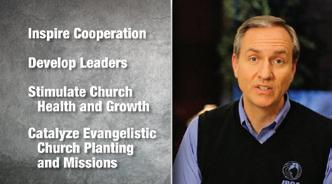
“We’re also looking at a strategy to reach those who have been engaged at one level” and move them “to a new level,” Page said at the annual meeting, adding that he sees his role as bringing in the funds to support IMB and NAMB in their Great Commission work.
His comments seem prescient, as they came ahead of the announcement by IMB of up to 800 personnel cuts in order to balance their budget. Since 2007, IMB spent $270-million in reserves to keep almost 5,000 international missionaries on the field.
As churches consider their support for missions worldwide, the Cooperative Program remains Southern Baptists’ consistent, systematic, and balanced approach to funding missions on all our Acts 1:8 mission fields, from Jerusalem (here where we are) to the ends of the earth.
– IB staff, with info from SBC Executive Committee, Baptist Press and RonnieFloyd.com.
Cooperative Program works!
Mark your October calendar Cooperative
Program Month!
When you give to your church, part of your offering supports missions across the globe through Southern Baptist’s Cooperative Program.
The Cooperative Program is the SBC’s unified plan for missions giving. Participating churches give a percentage of their undesignated receipts in support of their state convention as well as the national SBC missions and ministries.
Missions giving is a priority year-round, but especially in October, we focus on the importance of CP giving. Here are some ideas for educating local churches:
• Share CP information through bulletin boards, newsletters, videos.



• Hand out a CP brochure with the bulletin one week.
• Put CP information in new member packets.
• Feature international missions, North American missions, and state missions in a variety of ways at your church. All are funded through your church’s CP giving.




IBSA churches gave $6.1 million to missions


through CP
56.25% goes to church planting, evangelism, missions, and church strengthening in our own state.
43.75% goes to the national Southern Baptist Convention. 56
The national SBC Cooperative Program budget for 2015-2016 is: $186,500,000, which will support:
73.20%
22.16%
2.99%
World Missions Ministries (IMB & NAMB)


Theological Education (Seminaries/Libraries/Archives)
SBC Operating Budget
Look
All churches that subscribe to the bi-monthly Mission Illinois bulletin insert will receive this special CP edition in the mail in September. If your church doesn’t receive it, sign up. It’s free. And it’s a great way to show your congregation how their missions giving advances the gospel worldwide. Write to MissionIllinois@IBSA.org.
Or download the insert and include it in your church publications. www.IBSA.org/CP
1.65% – SBC.net


Christian Ethics and Religious Liberties Ministries

2015 IBSA Annual Meeting

First Baptist Church, Marion | November 11-12


IBSA Pastors’ Conference • November 10-11
Northern Illinois Ladies Retreat
“The Contents of Me”
October 9-10 Streator Baptist Camp
Featuring Serena Butler Regional Manager, Operation Christmas Child
Cost: $45 with $20 deposit (non-refundable after Sept. 30); balance is due at retreat. Or, total cost of $50 is due once you arrive at Streator.
For more information about registration and mission projects for Angels’ Cove Maternity Center and Operation Christmas Child, contact Lois Payne, loisp2005@yahoo.com.
Pastors on the Front Lines
with Dan Fisher
Rediscover America’s forgotten history and join Dan Fisher as he brings history to life with his dramatic fast-paced historical presentation about the Black Robed Regiment and the pastors who led the fight for American independence.

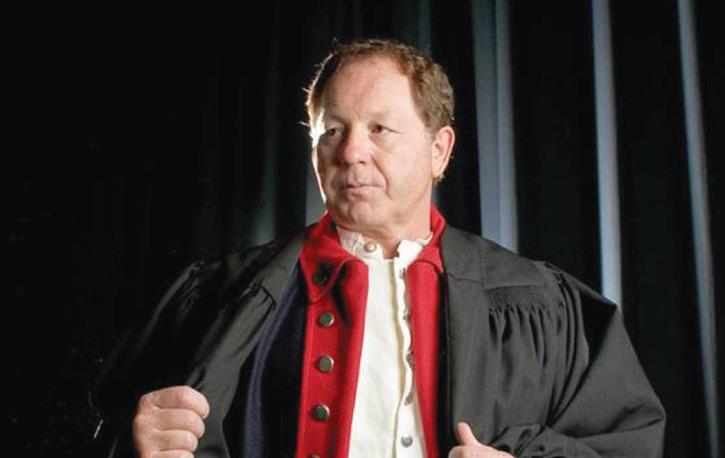
Although many have never heard of them, they were the most outspoken proponents of truth and liberty in 18th century America. They bravely led their men onto the battlefield to face the cold steel of the dreaded British Redcoats. Even though their role in the birth of America has been largely forgotten, they were key leaders in the cause for American liberty and independence. Hated by the British who called them the “Black Robed Regiment,” these courageous men “laid it all on the altar” for freedom.

Without their bold stand and brave deeds, America may never have come to be. They were America’s “patriot preachers.”
His multi-media reenactment incorporates music, video and authentic colonial period attire. The entire family will also enjoy his hands on display of Revolutionary War artifacts. For those who love history, don’t miss Dan Fisher and Bringing Back The Black Robed Regiment.
Dan Fisher is the Senior Pastor of Trinity Baptist Church in Yukon, OK. He was one of the original Pulpit Freedom Pastors and a national leader in Bringing Back the Black Robed Regiment. He also currently serves as an Oklahoma State Representative. These events will be held at the following locations:
Grayslake September 27 PM
Rockford September 28 PM
Freeport September 29 PM
Homer Glen
September 30 PM
Robinson October 1 PM
For more information, go to www.illinoisfamily.org or call 708-781-9328.

MISSION
Community Centered THE BIG PICTURE
Church commits new building, café ministry as ‘beacon’ of hope
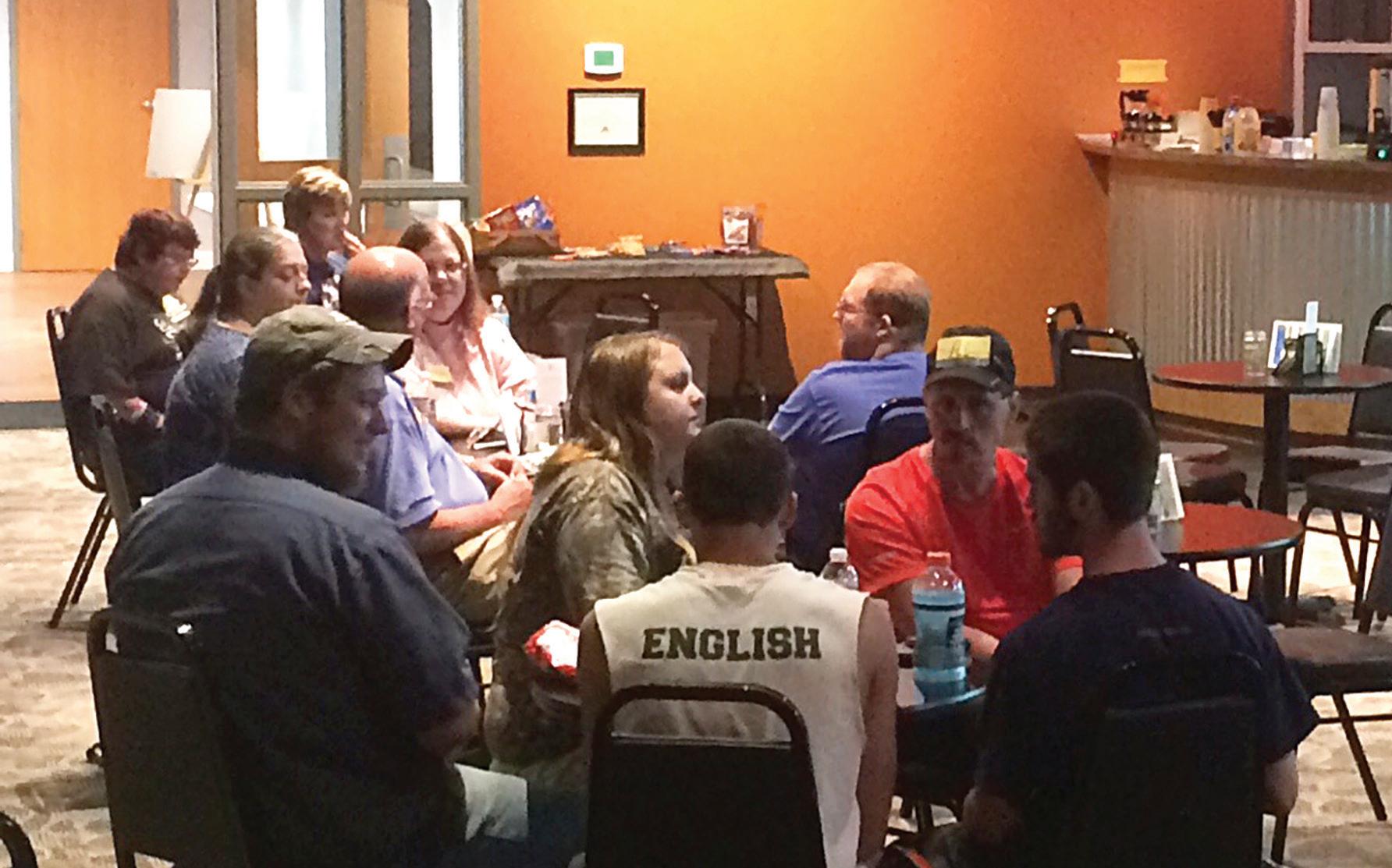 BY MORGAN JACKSON
BY MORGAN JACKSON
Every Tuesday and Thursday night, First Baptist Church in Waterloo hosts what Pastor Steve Neill calls “a scheduled hour of stories and conversations to feed the soul.” The weekly meeting around coffee and discussion, called Lifetree Café, resulted from the church’s dedication to use a new building to reach their community.
“Whether you go to a church or not, you’re always welcome at Lifetree,” said Cyndi Antry, a member of the team responsible for setting up the café each week.

The ministry probably wasn’t on anyone’s radar nearly three years ago, when an official press release announced the
church’s plans to begin construction on “The Beacon.” The congregation had been envisioning the new building for quite some time, with an original goal to build an extra 8,000-square-feet onto their pre-existing building to accommodate more space for classrooms and activities.
The congregation had spent a year on the planning, development, and funding of the proposed building, when they realized a former nursing home connected to the church’s property was just sitting there…vacant.
The church purchased the 24,000square-foot space at an unbelievably low price, said Lisa Dean, co-leader of The
Continued on page 12
Lifetree Café feeds hungry souls
Continued from page 11
Beacon’s logistics planning team. And after 15 months, more than 80,000 hours of work, and help from over 700 volunteers from 40 churches across 18 states, The Beacon was finally completed.
The new building contains a fellowship hall, kitchen and dining room, entertainment stage, café, children’s education center, youth wing, recreation area, basketball court, and a capacity of 400 people. And its presence on Market Street offers great access to and for the community.
The Beacon is now home to a number of outreach programs for children and adults, and Lifetree Café has especially captured the community’s attention. The “conversation café” is a nationwide ministry with multiple sites in the United States and Canada. It is designed to be a safe place for people to explore their spiritual questions and to share their stories.
Discussion revolves around a specific topic each week—usually something spiritually and culturally relevant like prayer, loneliness, health, ADHD,
guilt, life after death, justice, race, immigration, relationships, other world religions, stem cell research, and countless others.
A host team and friendship team run each session; the friendship team is in charge of setting up coffee and snacks, and one of six hosts leads the conversation.

Each Lifetree meeting lasts an hour and typically includes a short film, as well as small and large group discussion. People are also given helpful tips and applications they can take home and practice in their everyday lives— often printed handouts containing information on the week’s topic, as well as online links to learn even more.

No two meetings are the same, Antry said. “Some are very emotional. Some are very lighthearted.” It just depends on the week, the topic, and who God brings through the door.
FBC Waterloo’s Facebook page advertises “food for thought” as the main entrée at LTC. Pastor Neill says Lifetree is “sort of like a live, local talk show—with an inspirational twist.”
The ministry’s ultimate purpose is to help those who attend grow closer to God, but no one there is trying to “sell” people on a certain church or religion. Rather, the goal is to offer a place where individuals can come and ask questions, talk freely, and explore life. If God wants to work during a discussion and convict someone’s heart, he will, Antry said.
Lifetree just helps create a space where people can experience the Lord’s power.
“Here at Lifetree we have certain things we value,” said David Batts, chairman of the building committee for The Beacon. “Your thoughts are welcome, and your doubts are welcome. We’re all in this together.”
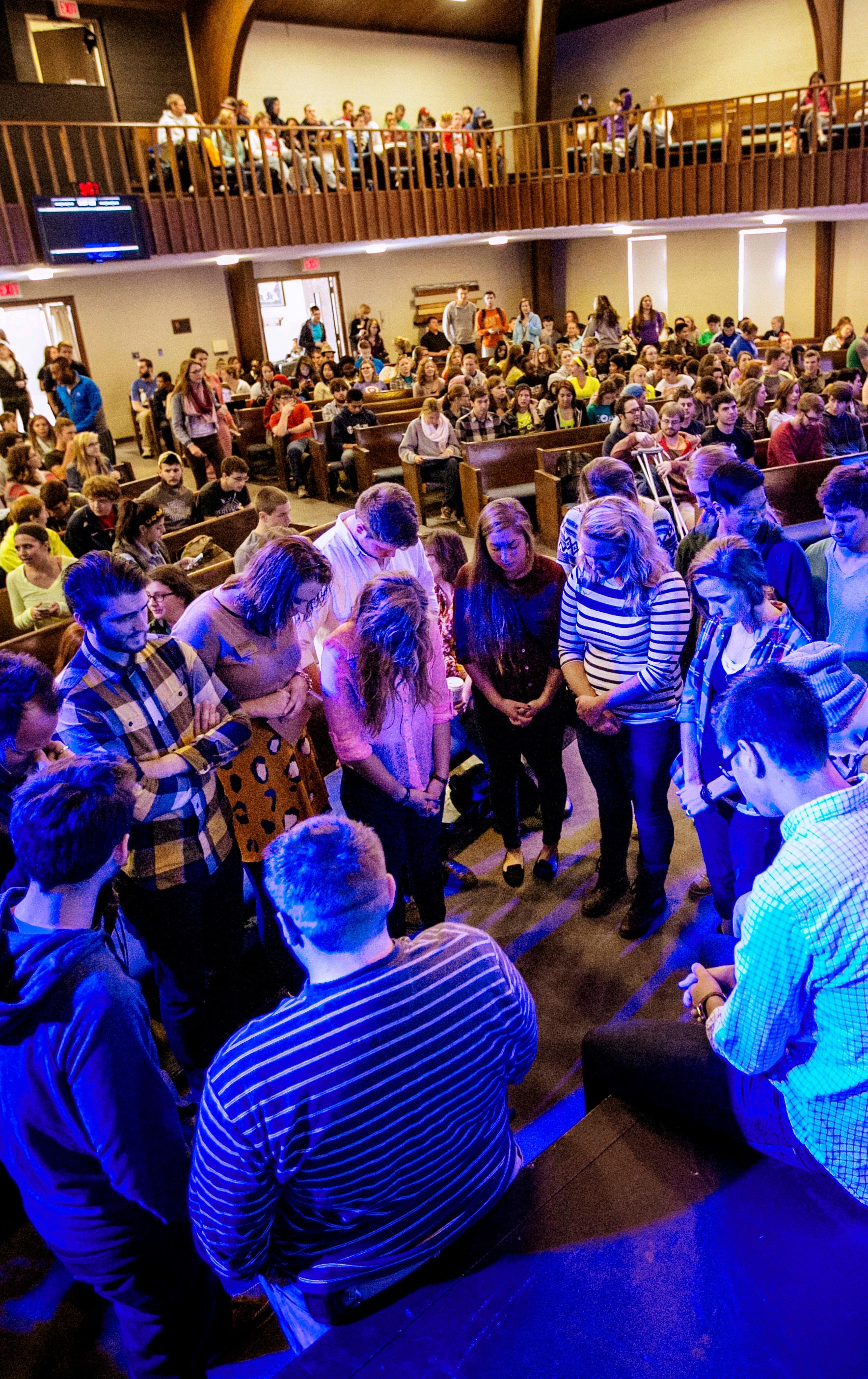
Young people, high hopes, big burden
 BY CARRIE CAMPBELL
BY CARRIE CAMPBELL
While many college students were using summer break to relax and catch up on some muchneeded sleep, one group of undergrads dedicated their downtime to proclaiming the name of Jesus throughout the city of Chicago, one of our country’s biggest mission fields.
The North American Mission Board started a program a few years ago called Generation Send. They identified 32 cities in great need of laborers and then sent students out to work in them. This past summer almost 400 youth showed 16 of these cities the love of Christ as they learned what it meant to live a life on mission in an urban context.
Students from Georgia, Texas, Louisiana, and Tennessee were excited to come and serve in the unique and diverse community of Chicago. They arrived at the beginning of the summer with few expectations for the coming months but to see Christ glorified.
Chicago contains 77 neighborhoods filled with people from across the world. It is the third largest city in the U.S., but less than 10 percent of the population is involved with an evangelical church. They are in desperate need of the gospel and for people to come and serve in the name of Christ.
Two of the student leaders through Generation Send, known as mobilizers, were returning to Chicago for the second summer in a row. They had become extremely burdened for the city and wanted to continue sharing that passion with others. Looking beyond all the glitz and the glamour, Chicago is still a place where people have real needs and individuals are desperately lacking gospel truth. Realizing this firsthand has a way of leaving an imprint on one’s heart.
Four mobilizers led teams of 3-10 people in four of the 77 Chicago neighborhoods. Students engaged business owners, college students, young professionals, different ethnic groups, families, and many others for the gospel.
Every week a Generation Send student would encounter someone who needed to hear God’s truth. And many times they were receptive to it. Less than halfway through the summer, students couldn’t bear the thought of going home and leaving these people behind.
In July when it was time to say goodbye, one team had the privilege of leaving Bibles with a Muslim family who owned a restaurant that they visited several times a week. Another team came alongside a church planter and his family and helped them prepare for their first Sunday preview service. In a matter of only six weeks, these students from Georgia, Texas, Louisiana, and Tennessee were completely broken for this place that desperately needs Jesus.
One mobilizer has now made the commitment to move to Chicago. In September she will move from her quiet, small town in Louisiana to the chaos of the Windy City, all to further the gospel. Another student is also praying about becoming a church planter there in the coming years.
Many others have already committed to bringing teams back next summer and will continue to pray for Chicago throughout the year.
All throughout scripture we see God’s people burdened for cities that were in need of Him. In the book of Nehemiah we encounter a man who asked his King to return to Jerusalem, a city he once called home. He was so burdened for the people of Israel and for the city of Jerusalem that he wanted to make new again what was destroyed. The task was not easy and the burden was not light, but he was determined to obey and honor what God had called him to do.
This theme of being burdened for God’s cities continues today. God is calling his people back into the cities so that the gospel may go forth. Cities are considered the heart of our country and we need the people who live in them to have repentant hearts and put their faith in Jesus Christ. Please pray for Chicago and for students preparing to join the mission field there.
And he said to them, “The harvest is plentiful, but the laborers are few. Therefore pray earnestly to the Lord of the harvest to send out laborers into his harvest” Luke 10:2 (ESV).
Carrie Campbell is a teacher in Beardstown. She has served as coordinator for NAMB’s Generation Send summer missions program in Chicago for two years.

fresh ideas
Clique. Un-clique.
“We’re a friendly church!” It’s a phrase heard regularly in most churches. Often, the more true statement is, “We’re really friendly with one another.” Is it possible that newcomers perceive your sweet fellowship as cliquish?
As the fall semester kicks off, try these simple ideas to unclique your class:
• Stop and refocus. Teach members to pay attention. When a guest arrives, members immediately change focus from chatting with one another to warmly welcome the guest.
• Every member’s a greeter. Train members to see every guest through God’s loving eyes. Learn their names. Listen well and introduce guests to others. Have real conversation with them. Tell them about church events and ministries they might enjoy. Get to know them and share your own Jesus story. Don’t forget to learn their names.
• Avoid exclusive phrases. “Most of us are related.” “We’ve been friends for years.” “We all grew up in this church.” Phrases like these inform guests they’ll never be accepted. Show love for one another, but never at the expense of excluding others.
• Provide frequent entry points. Guests are always welcome, but intentionally plan special days to encourage members to bring newcomers. Use any excuse. A new Bible class or sermon series is beginning. We’re going out for lunch after church. Bring your neighbor early next week for tea. Keep members thinking of the lost people they know.
• Connect digitally. Guests feel welcomed when individuals send an e-mail to invite them back next Sunday. Add guests’ names to your class or church group e-mail list immediately. “Friend” them on Facebook.
• State the goal often. Remind the group that we are organized to reach those who don’t yet know Jesus. Strive for second-time guests and new members. Small groups can set numeric goals for growth. Ask every guest if they’d like to join the class. They don’t have to be a Christian yet to join Bible class. Church is not a closed group.
• Un-clique leadership. Involve people in large and small leadership roles. Many responsibilities are appropriate for newcomers, so offer a place of service ASAP.
Diana Davis is an author and minister’s wife. This column was originally published at BPNews.net.
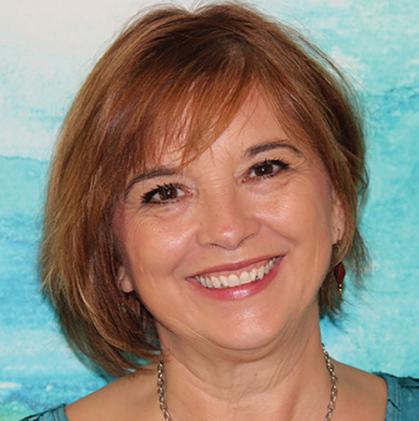
God is calling his people back into the cities so that the gospel may go forth.DIANA DAVIS
in THE ZONE
Meet: Pat Pajak
Zone ConsultantZone: 6 (Bay Creek, Capital City, Central, Macoupin and Sandy Creek Associations)
Marker honors slain pastor
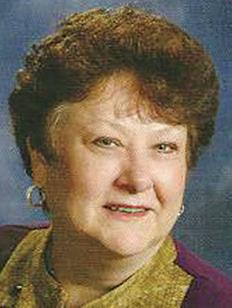
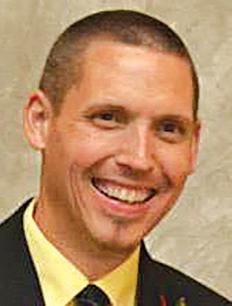
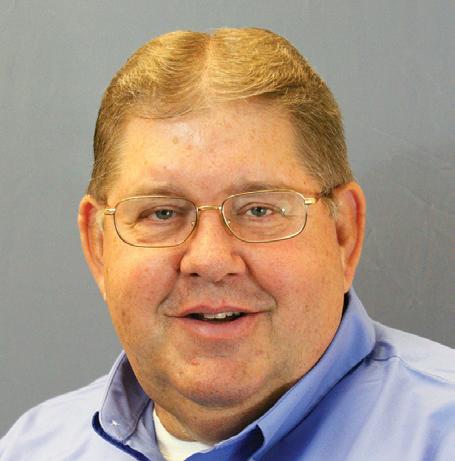
CHURCHES
New Faces
Jeremy Degroot joined FBC Crystal Lake as lead pastor. Prior to this position he was a deacon at Lincoln Avenue Baptist Church in Jacksonville. Jeremy is married to Samantha, and they have three young children, Sophie, Toby, and Kenzie.
Other current roles: IBSA’s Associate Executive Director, Church Consulting Team; Pat’s Playbook columnist, Illinois Baptist newspaper; Treasurer, Midwest Leadership Summit Team
Birthplace: Woodstock, Illinois
Family: Pat and his wife, Joyce, have been married 44 years and have four children, nine grandchildren, and one great-granddaughter.
Years in Illinois:
Other places you’ve served here: Emmanuel Baptist Church, Marengo; Tabernacle Baptist Church, Decatur
What makes your zone unique?
Zone 6 stretches across most of Central Illinois, east to west from Lovington to Quincy, and north to south from Clinton to Piasa. It includes 109 churches, one mission, one full-time director of missions, and two part-time DOMs.
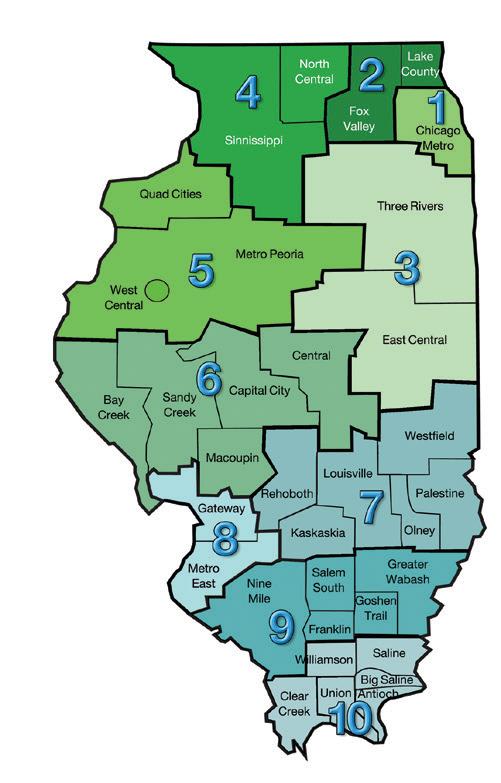
Favorite restaurants in your zone: Smokey Bones (Springfield)
IBSA zone consultants work with directors of missions and churches across the state. www.IBSA.org/zone
NeTworkiNg
The Village of Maryville recently opened a park in honor of a local pastor who was killed by a man he was trying to help. Now a marker has been added at the site to tell the pastor’s story.
“The first time I was in the park I realized that some people…would not know who Fred Winters was,” said a member of First Baptist Church of Maryville, Robert Cunningham. “I knew for sure that the park needed a historical marker.” Cunningham started raising funds for the marker.
Fred Winters was called as senior pastor of FBC Maryville in 1987. Under his leadership the church grew from 30 to 1,500 attenders, and Winters led a large relocation and building project.
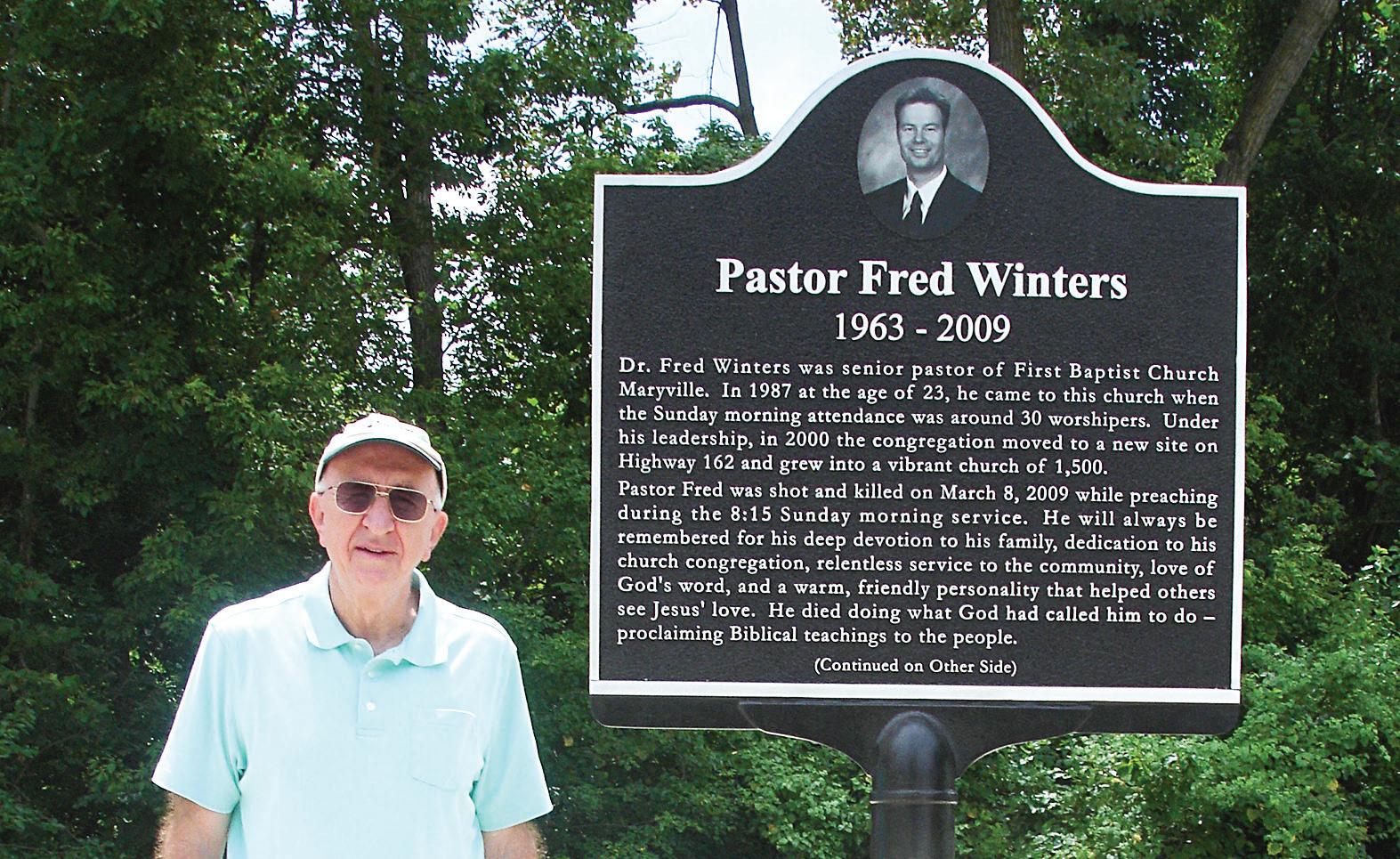
Winters was killed March 8, 2009 while preaching. As Cunningham observed, the pastor will be remembered for devotion to his family and church, his service to the community, and his love of God’s word. The citation on the marker concludes, “…the legacy of Fred’s love for others and his community will last far longer than his lifetime.”
Looking good at 175
Kaskaskia Baptist Association (KBA) celebrated its 175th anniversary on September 12 at Temple Baptist Church in Centralia. Recently retired Director of Missions, Jim Shemwell, was recognized for his 19 years of service.
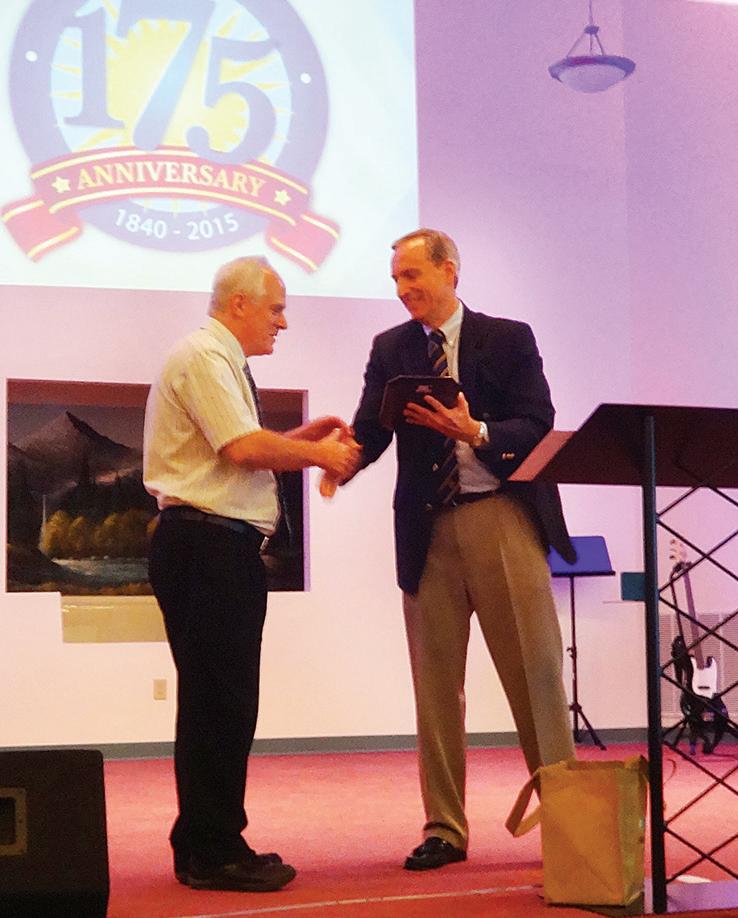
The association’s history was told with historical records and songs from across 17 decades starting in 1840. Kevin Childers from Unity Baptist Church narrated the event as he dramatized W.F. Boykin, the founder of KBA.
Churches shared their own history with booths representing the ministries of KBA over the years.
Watson Baptist Church seeks a full-time pastor. Average worship attendance 60, salary with benefit package. Please send resume to Pastor Search Committee P.O. Box 28, Watson Il 62473. For more information phone Gary Beck at (618) 686-2660.
Send NetworkiNg items to AndreaHammond@IBSA.org
Ridgway First Baptist Church is seeking a full-time pastor. E-mail resumes to ridgway firstbaptist church@gmail.com or send to First Baptist Church P.O. Box 436, Ridgway, Illinois 62979. Attn: Pastor Search Committee.
Jan. Bible Study prep events
Illinois Baptists have two opportunities to prepare for the 2016 January Bible Study of 2 Corinthians.
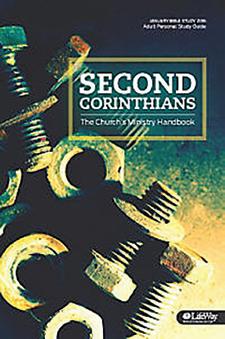
The Sallateeska January Bible Study Preparation is October 5-6 at Lake Sallateeska Baptist Camp at Pinckneyville. The cost of the event is $76 ($96 single occupancy). The instructor will be Dr. Eric Turner, Assistant Professor of New Testament and Greek at HannibalLaGrange University. Registration should be made payable to: JBS Preparation and sent to: John Keyes, 2104 Kaskaskia Dr. Springfield, 62702.
The Streator Experience is October 26-28 at Streator Baptist Camp at Streator. The cost for this men’s event is $100 which covers all meals and two nights lodging, private rooms are available for an additional $12. The instructor will be Michael Taylor, Bible teacher and founder of Devoted to the Word Ministries. Sons of the Father will lead worship sessions. E-mail Don Evans at pastor don63@gmail.com or Ric Worshill at chaplain@shomreem.org to register. Mail registration to Don Evans, 106 White Oak Park Lane, Bluford, IL 62814.
Correction
Terenda Wyant of Belleville is one of eight new trustees of LifeWay Christian Resources. She is director of childhood ministries at Sterling Baptist Church in Fairview Heights. Find more information on ministry positions at IBSA.org/connect
First Baptist Church of Herrin will hold its 150th anniversary celebration on Nov. 15 (not in Oct. as announced in the previous edition). Special guests will include IBSA’s Nate Adams. And we note that FBC Herrin was the host of the first Illinois Baptist State Association Annual Meeting in 1907. The year before, in 1906, an organizational meeting for the nascent IBSA was held at FBC Pinckneyville. (Thank you, Emalene Wilcox, for bringing this to our attention.)
REMEMBERING PASTOR FRED – The community named a park for Pastor Winters, but Robert Cunninham wanted visitors to know why.September 25-26
Illinois Changers
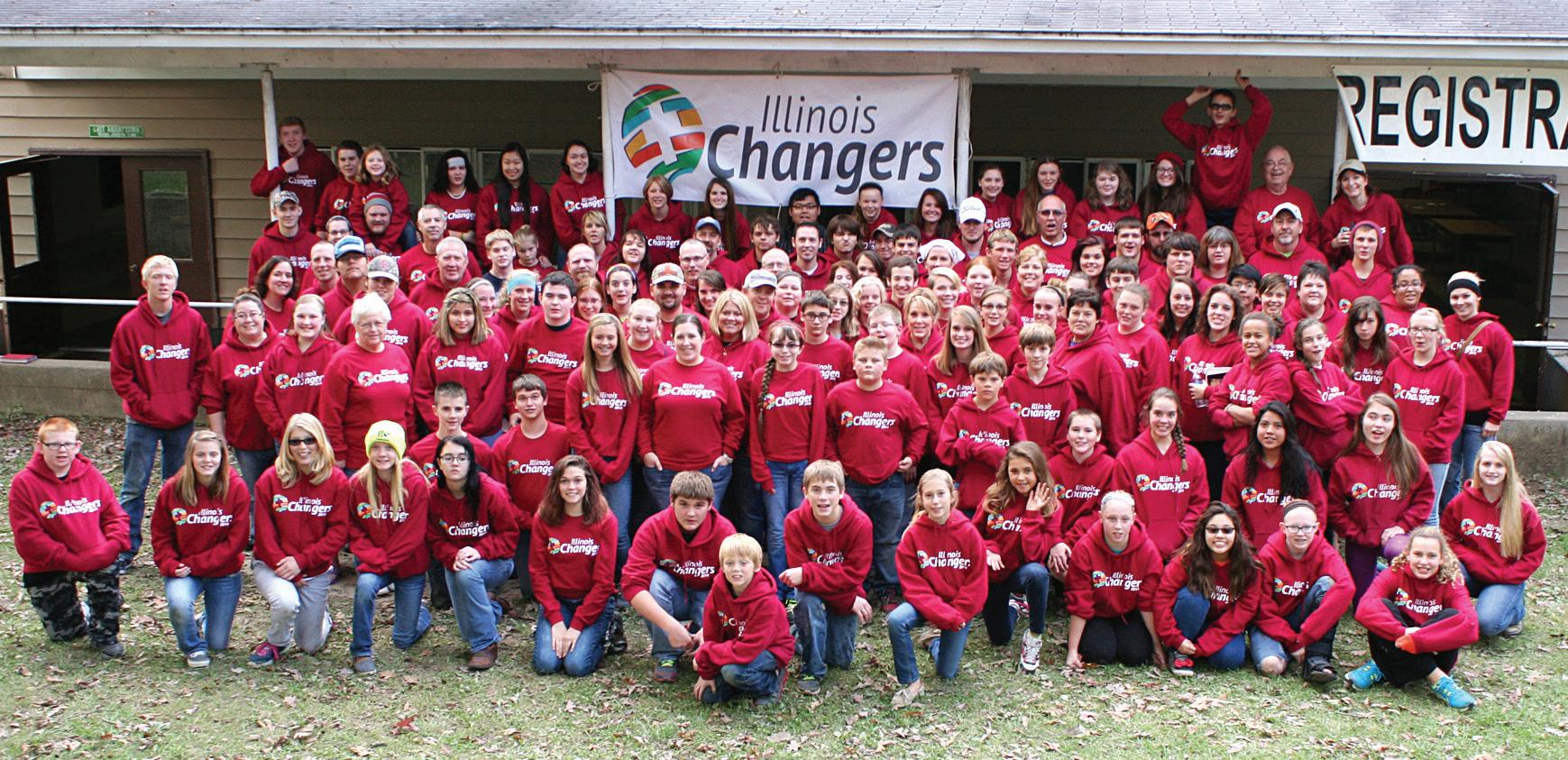
What: Hands-on missions experience for students in grades 7-12
Where: Lake Sallateeska Baptist Camp
Cost: $25 per person; $10 additional fee for lodging Saturday night Register: www.IBSA.org/students
September 26
Church Library Conf.
What: Training for media specialists
Where: IBSA Building, Springfield
When: 8:30 a.m. to 3 p.m.
Cost: $20 per person
Contact: DebbieMuller@IBSA.org
October 1-30
Cooperative Program
Emphasis Month
Go to www.IBSA.org/cp for resources.
October 2-3
Children’s Missions
Celebration
What: Missions-focused weekend for boys and girls in grades 1-6
Where: IBSA Building, Springfield
Cost: $15 per person for IBSA-affiliated churches; $20 all others Register: www.IBSA.org/kids
October 3
BCHFS Golf Tournament
Where: Green Hills Golf Club, Mt. Vernon Contact: KenSteward@BCHFS.com
October 9-10
Disaster
Relief Training
What: Classes in chainsaw, food prep, mudout, childcare, chaplaincy and more
Where: Lake Sallateeska Baptist Camp
Cost: $30 new trainees, $10 renewals Register: www.IBSA.org/dr
October 11
Youth Encounter

See ad at right
October 23-24
Children’s Ministry
Resource Conference
featuring 2015 VBS Preview
What: Become familiar with children’s ministry resources and learn how to start a children’s ministry. Churches with existing programs will be challenged to make their ministries even more effective.
Where: IBSA Building, Springfield and Pleasant Hill BC, Mt. Vernon Register: www.IBSA.org/kids
Contact: CathyWaters@IBSA.org
November 2
Plant St. Louis
What: Meeting to plan and implement strategy to start churches in the St. Louis area.
Where: St. Louis
Contact: CharlesCampbell@IBSA.org
November 4
Plant Chicago
What: Meeting to plan and implement strategy to start churches in the Chicago area.
Where: Chicago
Contact: DennisConner@IBSA.org
November 6-7
AWSOM Conference
What: AWSOM (Amazing Women Serving Our Maker) is a conference for girls in grades 7-12.
Where: IBSA Building, Springfield
Contact: BarbTroeger@IBSA.org
November 10-11
IBSA Pastors’ Conference
What: Preaching conference for pastors
Where: Marion First Baptist Information: www.IBSA.org/PC2015
November 11
Minsters’ Wives Luncheon
What: Conference and luncheon for all ministers’ wives
Where: Marion First Baptist
Contact: Judy Taylor (618) 499-0069
November 11-12
IBSA Annual Meeting
What: The 109th IBSA Annual Meeting will feature the annual sermon by Bob Dickerson, pastor, Marion First Baptist.
Where: Marion First Baptist Information: www.IBSA.org/IBSA2015
Contact: SandyBarnard@IBSA.org
Don’t freak out
dave says
QI started my own small bakery from home two years ago, providing wedding and specialty cakes. I just found out I’m pregnant, and while my husband and I are really excited about the baby, we’re worried about how we’ll handle things after the baby is here. I made about $20,000 last year, and he currently makes $35,000 working 60 to 70 hours a week. Do you have any advice for us now and after the baby arrives?
ACongratulations! You’re going to be a mom, and you’re running your own business.
I think more than anything you just need some good business planning and time management. The good news is that you have a little time on your hands before the baby gets here. You can begin scheduling things now and laying out a plan. If you get into a busy time — say around wedding season — you may want to bring in a baby sitter or some part-time help for your business. I don’t think I would do daycare every day.
it ends up being an awesome experience. Help each other out, and decide what it will take to get where you want to be as a family and with your careers.
The buying decision
QI live in Pennsylvania, and I’m accepting a new job out of state. My wife and I will be in this new area for at least two years, and we’re not sure if we should rent or buy a house.
AMost of the time, as long as you’re financially ready for such a big investment, buying a house is a good move. But if I’m in your situation, and I’m not sure if it’s a long-term thing, I’m going to rent until I see what the future holds.
DAVE RAMSEYYour husband also needs some relief in the future. Working those kinds of hours, and bringing home just $35,000 a year, is no way to help support a family the way he would like, I’m sure. If his hours are going to back down soon and his income is going to go up, that’s one thing. If not, he needs to look into getting some additional education, making modifications to his current career or finding another line of work.
Many people do the kind of things we’re talking about, and
It seldom makes a lot of sense to live in a place for two or three years and sell it, unless you get a ridiculously good buy at purchase and are able to sell for retail without any trouble. You’re in a situation similar to lots of military families. Often, they’ll be stationed somewhere for just two or three years. They’ll buy something, they can’t get it sold, and they end up with rental properties all over the country. Believe me, that wasn’t their initial plan. Playing long-distance landlord is a pain in the rear!
Rent for now. Then, if you two decide you like the new job and new surroundings — and it turns out you’re going to be there for a good, long while — start checking out the area for a nice home.
Financial advisor Dave Ramsey is a prolific author and radio host.
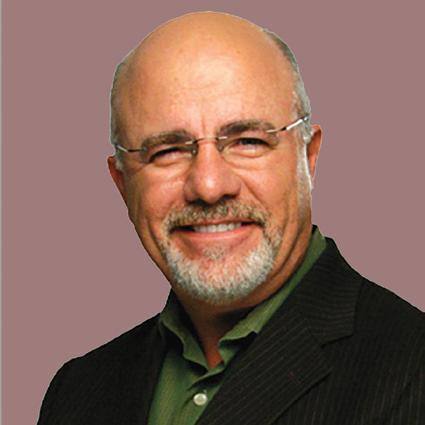
October 11
Conference for students in grades 7-12; 3-10 p.m. Hillcrest Baptist, Country Club Hills; Logan Street Baptist, Mt. Vernon; Tabernacle Baptist, Decatur;
Cost is $25 per person (IBSA churches until Oct. 8, dinner included). $30 all others. Register at www.IBSA.org/YE2015
i lead
Ideas from Mayo Clinic
Irecently escorted my mom to a doctor’s appointment at Mayo Clinic in Jacksonville, Florida. As we were driving onto the campus, Mom pointed out how nice everything was there. “I wish my church experiences could be as pleasant,” she said.
Mom was right. Mayo made their environment very pleasing, and their guests responded, even though many of them were in trying circumstances. Here are a few things I observed.
Church needed here...
Location: Granite City
Focus: With a population of around 30,000, Granite City is the second-largest city in the Metro East region, and in Southern Illinois.

Characteristics: Located just a few miles from downtown St. Louis, Granite City was originally established as a “company town” by brothers in the kitchen supply business. Major corporations like Kraft Foods and U.S. Steel currently have facilities in the area.
Prayer needs: Pray for a planter to adopt this city with the goal of starting a new church to reach people who don’t know Christ.
STEVE HAMRICK1. Welcome begins in the parking lot. There are plenty of spaces and easy access to the building. Greeters are stationed outside, at elevators, and in designated information centers. Greeters even provide towels and umbrellas for people coming to the building during a Florida rain storm. How hard would it be for a church to have greeters who meet people in the parking lot and escorted them to the proper location?
2. Gathering places are fellowship places. The clinic has wide hallways with lots of chairs, windows, water fountains, and even charging stations for electronic devices. People sat and talked. In the solarium, Mayo had local music students perform for the joy of the patients. In church we may not be able to redesign the hallways, but can we make more places conducive to fellowship? Perhaps we can have live music during transitions between Bible study and worship.
3. Celebrate heritage and vision. I learned Mayo’s history from many displays: pictures of founders, the first nurses, and even the first custodian who spent her career there. Displays also show plans for future expansion and new treatments. In our churches, we should celebrate the work of God. And providing a vision for the future will help people work together.
4. The team is proud of their product. At Mayo, the entire staff shows their concern for people. Their enthusiasm for their work is obvious. Churches have the best “product” imaginable, but do we always present Jesus in a way that brings him the glory he deserves? In worship services and in personal interactions, ministers and members alike can share with enthusiasm our faith in Christ.
Steve Hamrick is IBSA’s director of Worship and Technology. Read more “Mayo” discoveries at hamricksj.wordpress.com.
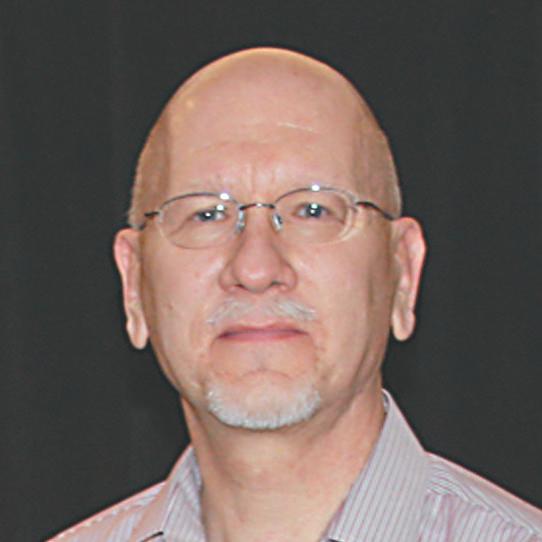
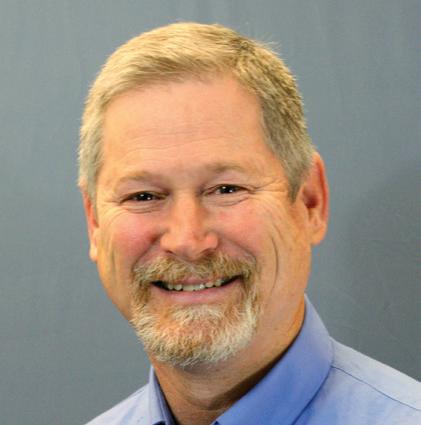
When families get back to the minivan each Sunday, the same question will be asked: “How was church?” A myriad of answers will be given, few of them educational or Biblical though. So provide a short and simple take-home piece written just for parents. Include a 4-5 sentence summary of the message, a one-line main point, and the month’s memory verse.
This is from an article on children’s ministry in the Fall issue. Resource magazine is published three times a year for leaders of IBSA churches. It includes leadership articles, planning ideas, and the season’s calendar of ministry opportunities. E-mail Communications@IBSA.org for a free subscription, or read it online at Resource.IBSA.org.
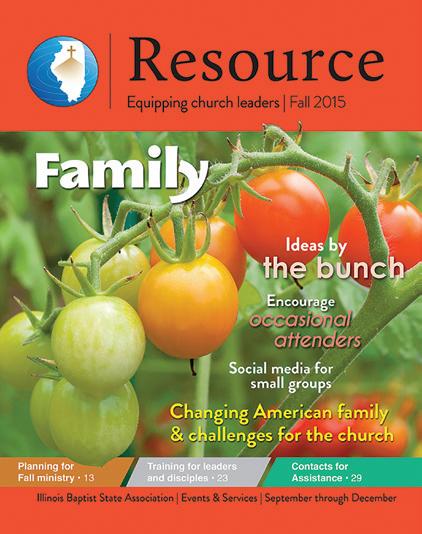
inspirations
pinterest.com/illinoisBaptist


Here’s a “pinspiration” about Pinterest. Make the popular idea-swapping website your new church bulletin board. Create a board for your church, and start pinning ministry ideas.

Pin it!
The IBSA VBS board gets a quarter-million impressions a month during VBS planning season. What about starting a board for your children’s ministry or small groups?
Men are catching on to Pinterest, too. What about a board for hunting, fishing, football, or car repair as opportunities for outreach?
The King’s Presence
“If you then, who are evil, know how to give good gifts to your children, how much more will your Father in heaven give good things to those who ask Him!” (Matthew 7:11, HCSB)
In “The Furious Longing of God,” Brennan Manning tells a story about professional golfer Arnold Palmer. Years ago, Palmer played a series of exhibition matches in Saudi Arabia.
The king was so impressed with the golfer that he offered him a gift. Not realizing that gift-giving is central to Saudi hospitality, Palmer politely declined.
The king was very unhappy, so Palmer reconsidered: “How about a golf club? A golf club would be a wonderful memento of my visit here.” The king was delighted. The following day, a messenger delivered to Palmer the title to a golf club with 36 holes, trees, lakes, and buildings. According to Manning, the lesson of the story is clear: “In the presence of the king, don’t ask for small gifts.” One of the great joys of my life is being able to help my children when they have a need. I love the fact they feel comfortable in coming to me. We discuss the best way for them to meet the challenge they are facing and my wife and I do what we can to assist. Another joy in my life is knowing that God is able and willing to help me. I can ask, seek, and find His answer as I walk in His ways.
PRAYER PROMPT: O God, in your presence is abundant joy. Thank you for your gift of salvation and your willingness to provide for me in all kinds and times of need.
Odis Weaver is pastor of Friendship Baptist Church in Plainfield and is currently serving as president of IBSA. Pastors are invited to join the online “IBSA Pastors’ Prayer Room” by e-mailing oweaver7307@gmail.com.
